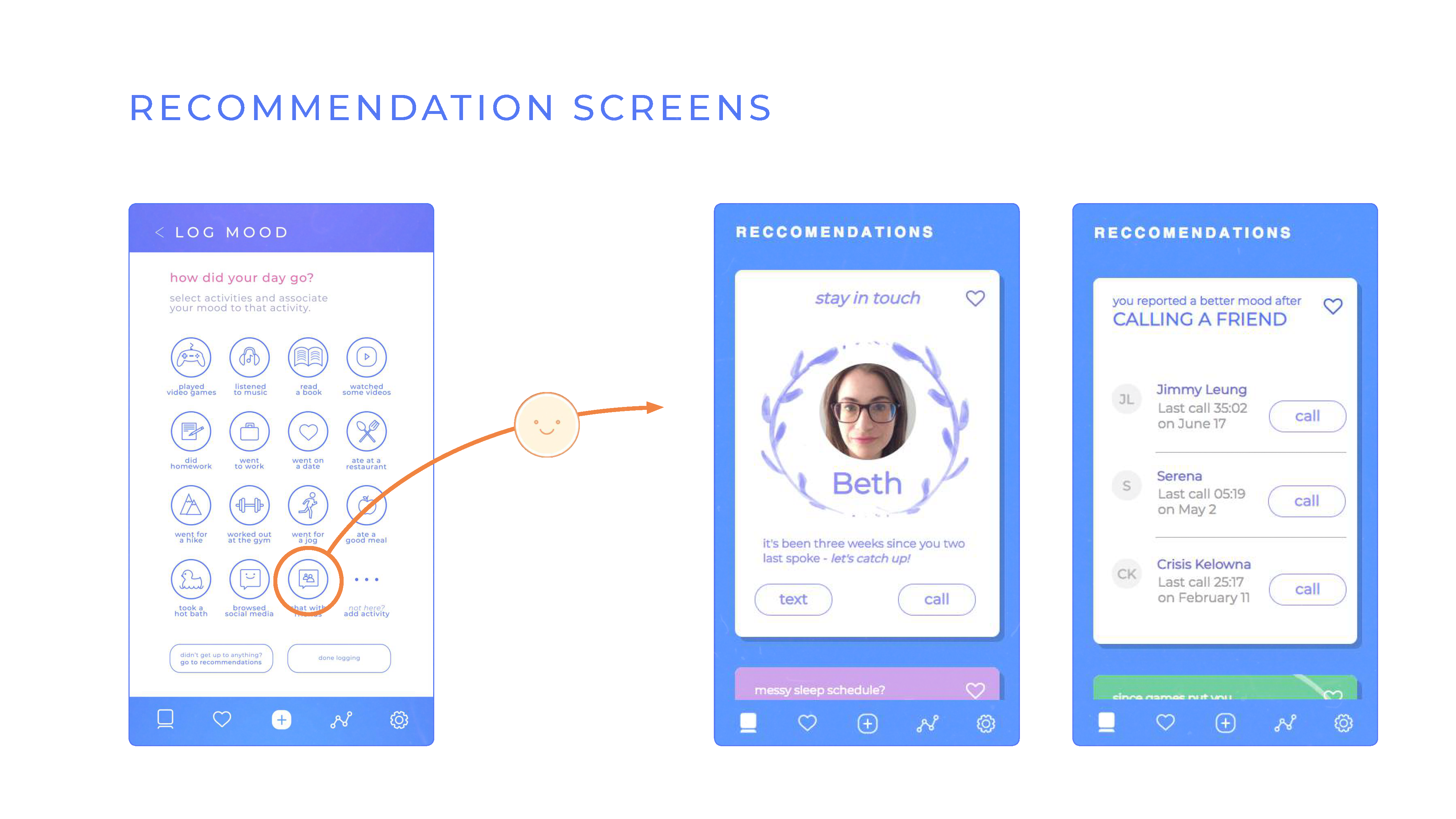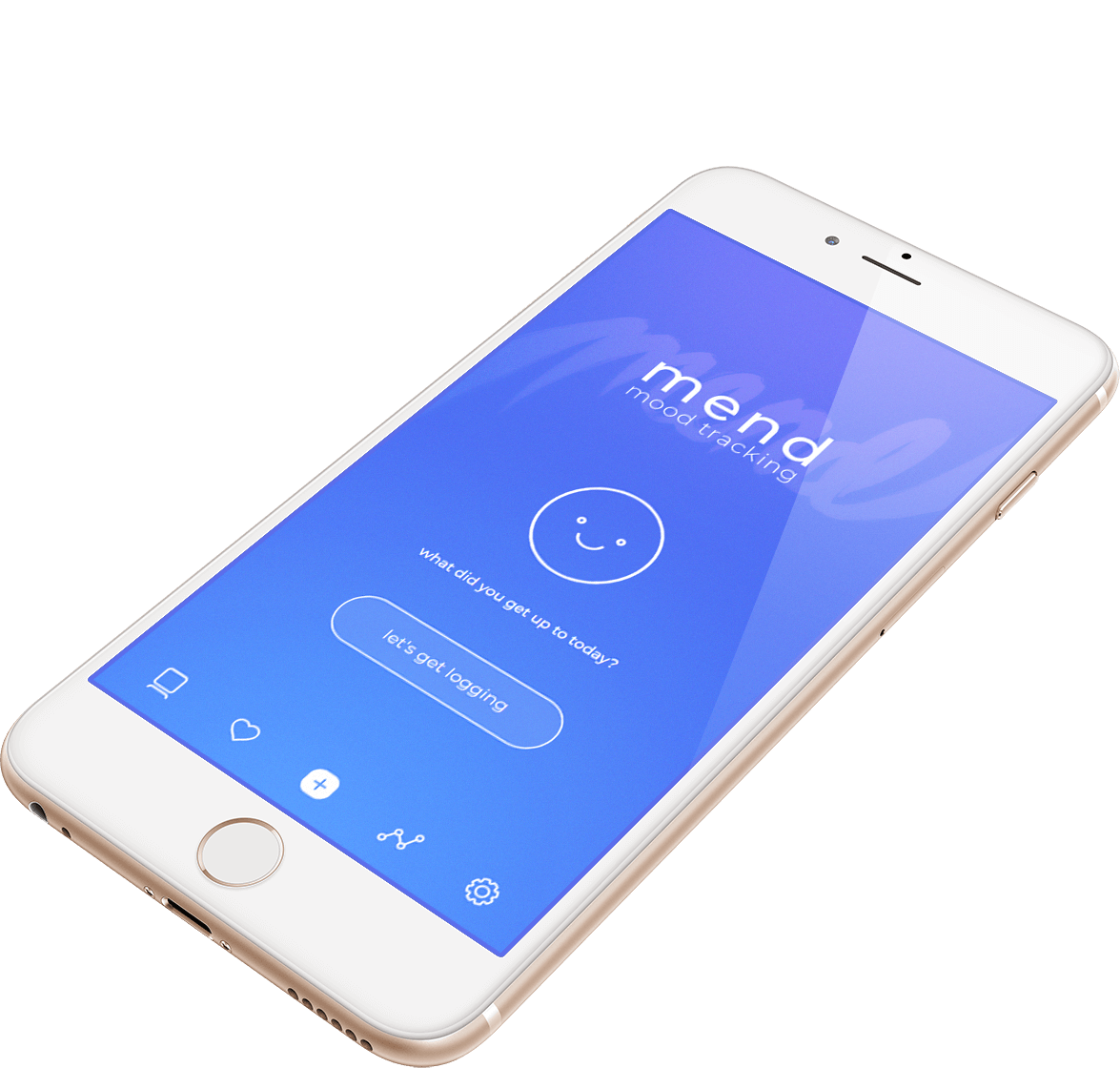
mend
School Project
Visual × UX/UI design
axure × illustrator
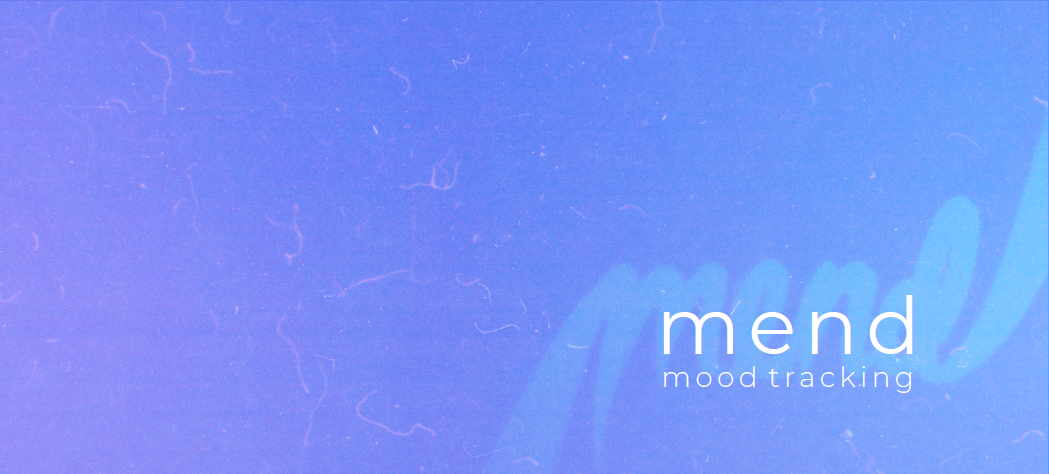
Overview
Mend is a mood-tracking app intended to provide recommendations for healthy activities, while keeping personalized rich history and statistics.
Mend is designed to assist millennials and post-millennials who experience major depressive disorder to track mood patterns, and to (re)discover healthy habits and events to avoid risk of relapse. The app’s algorithm is based on a logging system, where users add activities they have completed throughout the day, associating a mood they felt while experiencing said activity.
View our Interactive Prototype and [ PDF ] Slide Deck.
This app is only a prototype, produced for a User Interface Design class. The process involved domain research, interviews, wireflows, interactive prototyping, and microinteraction mock-ups.
Team
Alireza Mogharrab × Vicki Dancau × Mahsa Alavi × Ishpreet Sekhon
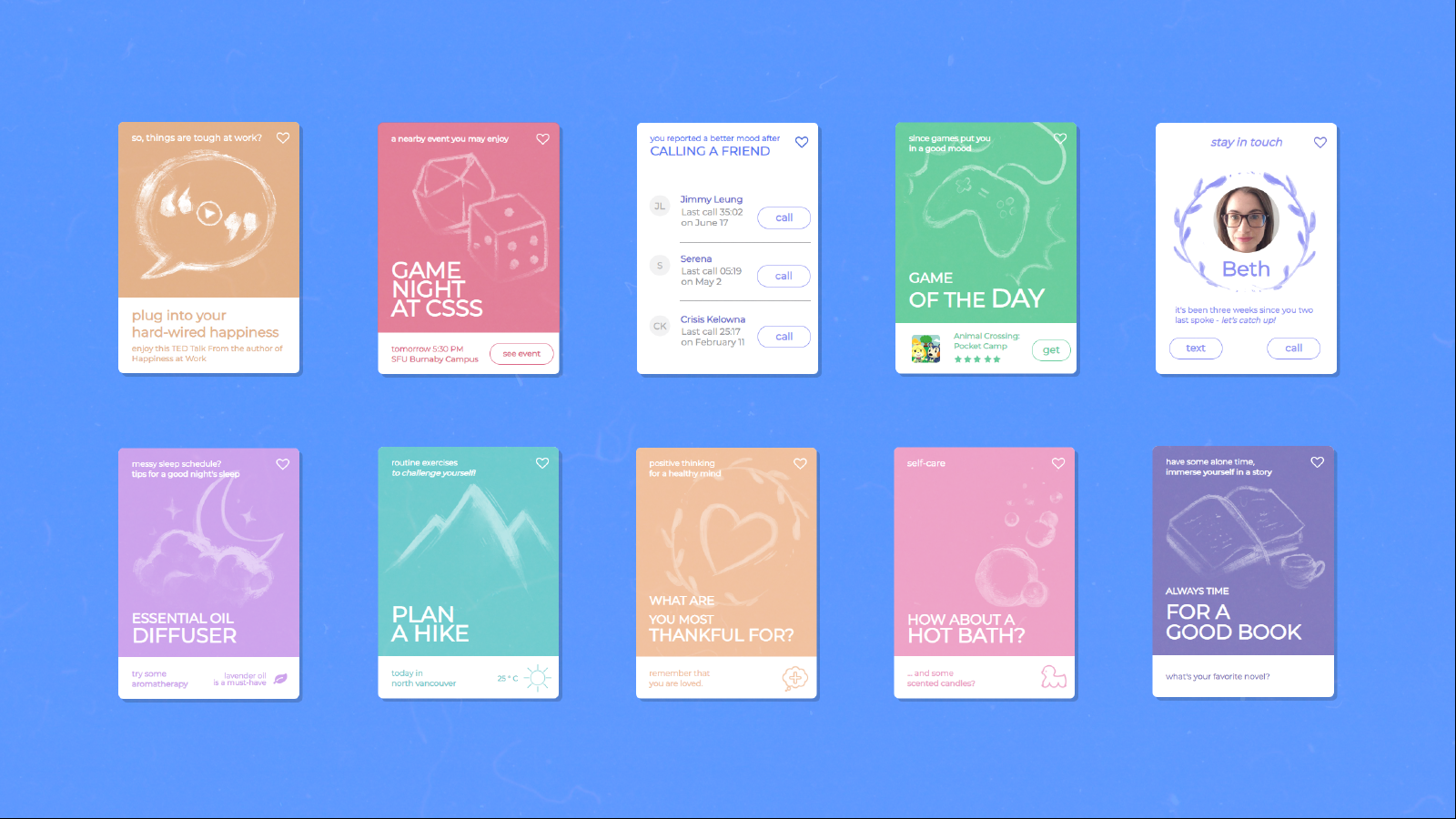
My Role
I was the art director, slide designer, illustrator, post production editor, support UX researcher and UI designer.
I proposed and advocated for the original domain research; I am passionate about designing tools that support mental health, and put my sincere effort into completing a project that would showcase such.
As the supporting UI designer, I chose the overall feel that went into the project. The predominant, soft but vibrant blue gave off a friendly feeling, allowing users to sense "calm" through the interface. We based the recommendation card design on Apple's App Store menu. I chose to incorporate an organic flair to the normally vectorized and minimalistic look with sketchy / painterly icons to support our friendly UI.
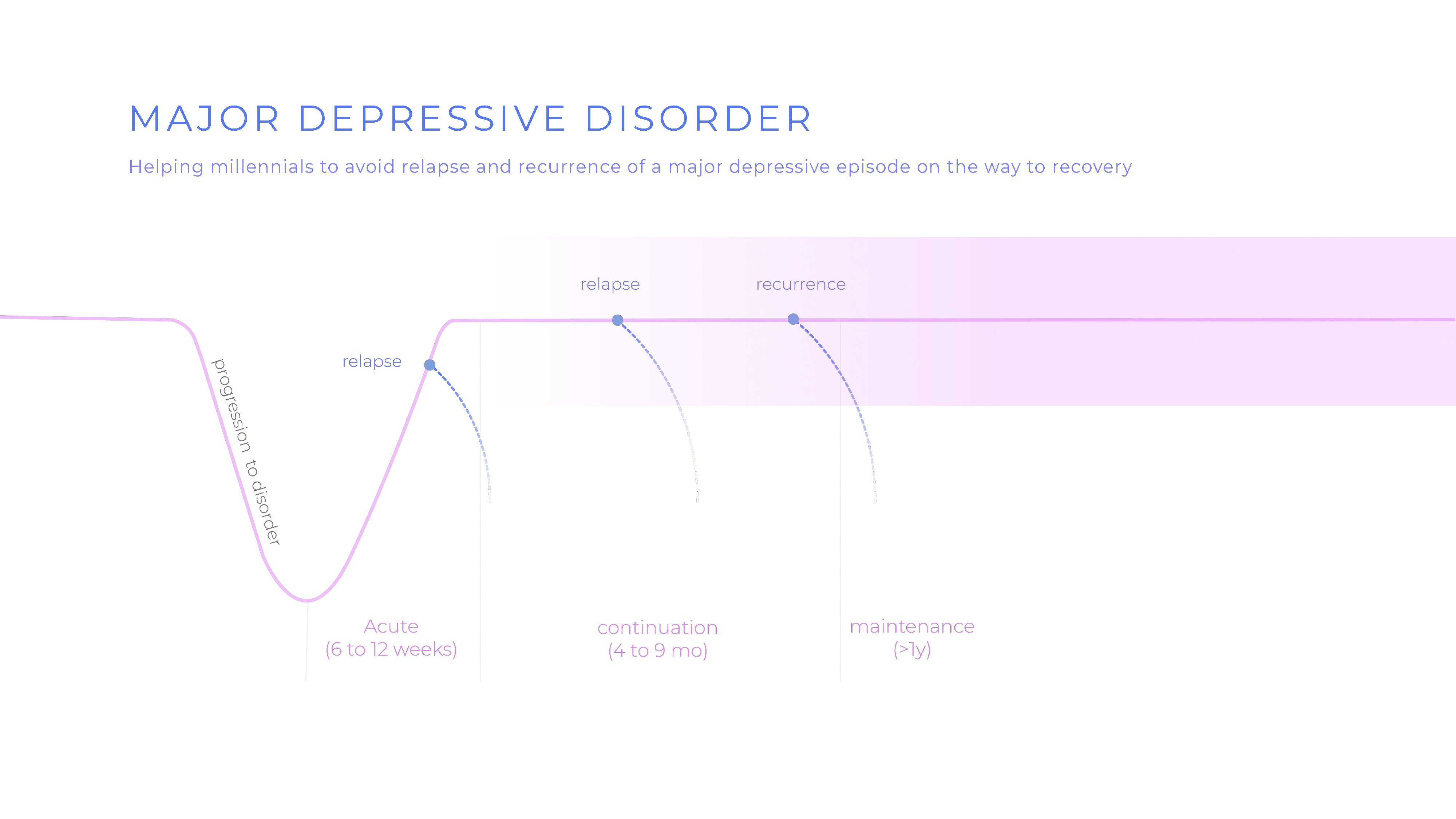
Research
Our target audience began under the large umbrella of “depression”. We struggled how to define this, often questioning if the topic was worth pursuing knowing the potential negative feedback it could get. However, we agreed to target the users who have reached a stage of depression where there still exists a risk of relapse, but the users are continuously getting the help they need.
In process of research and testing involved five participants in the age range of 19 - 30 years old. These participants have either experienced or are currently experiencing MDD personally, or support a loved one.
This research was gathered by think aloud testing, usability testing, and one-on-one interviews. From this information we were able to gather data for two personas:
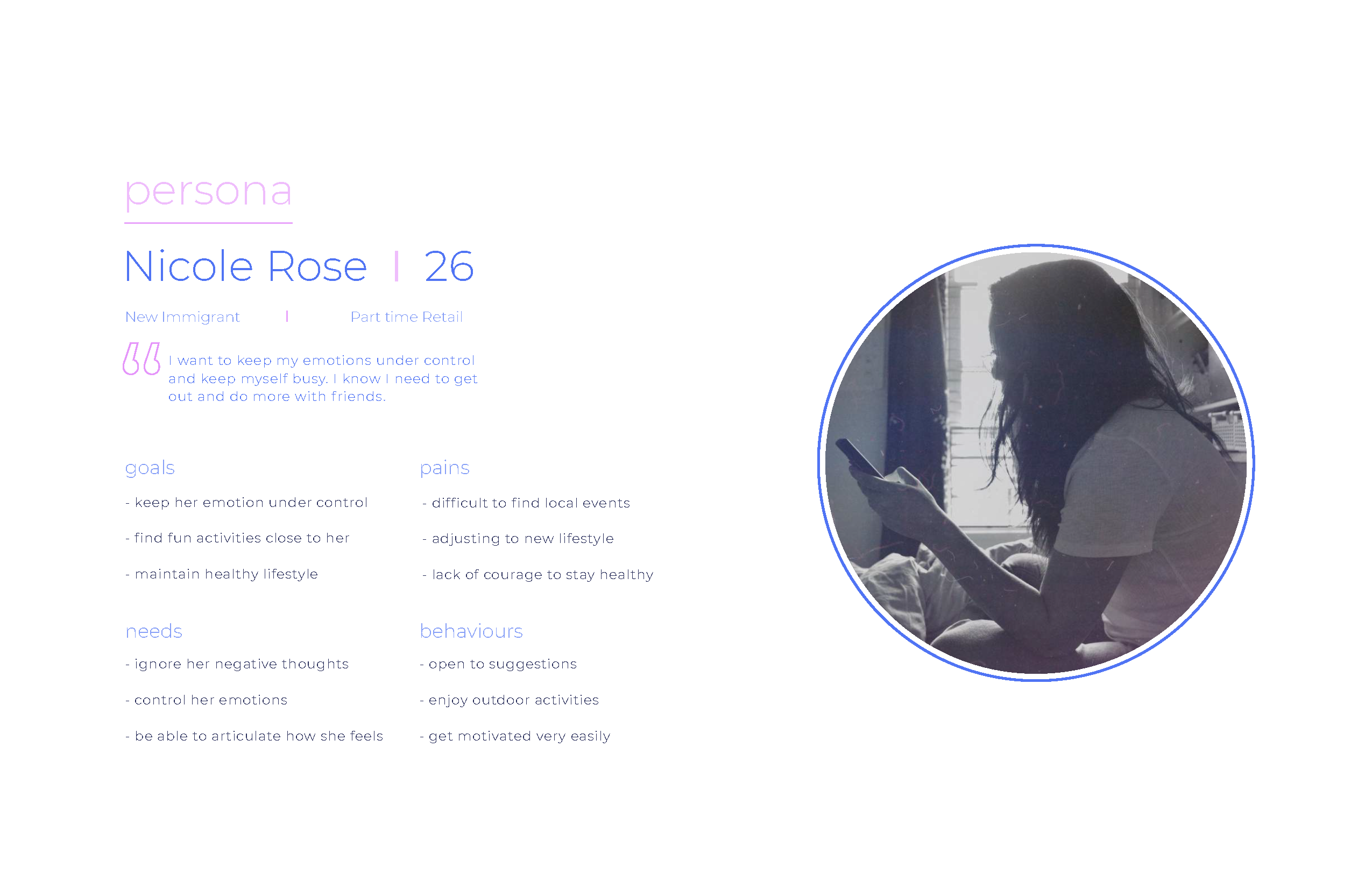
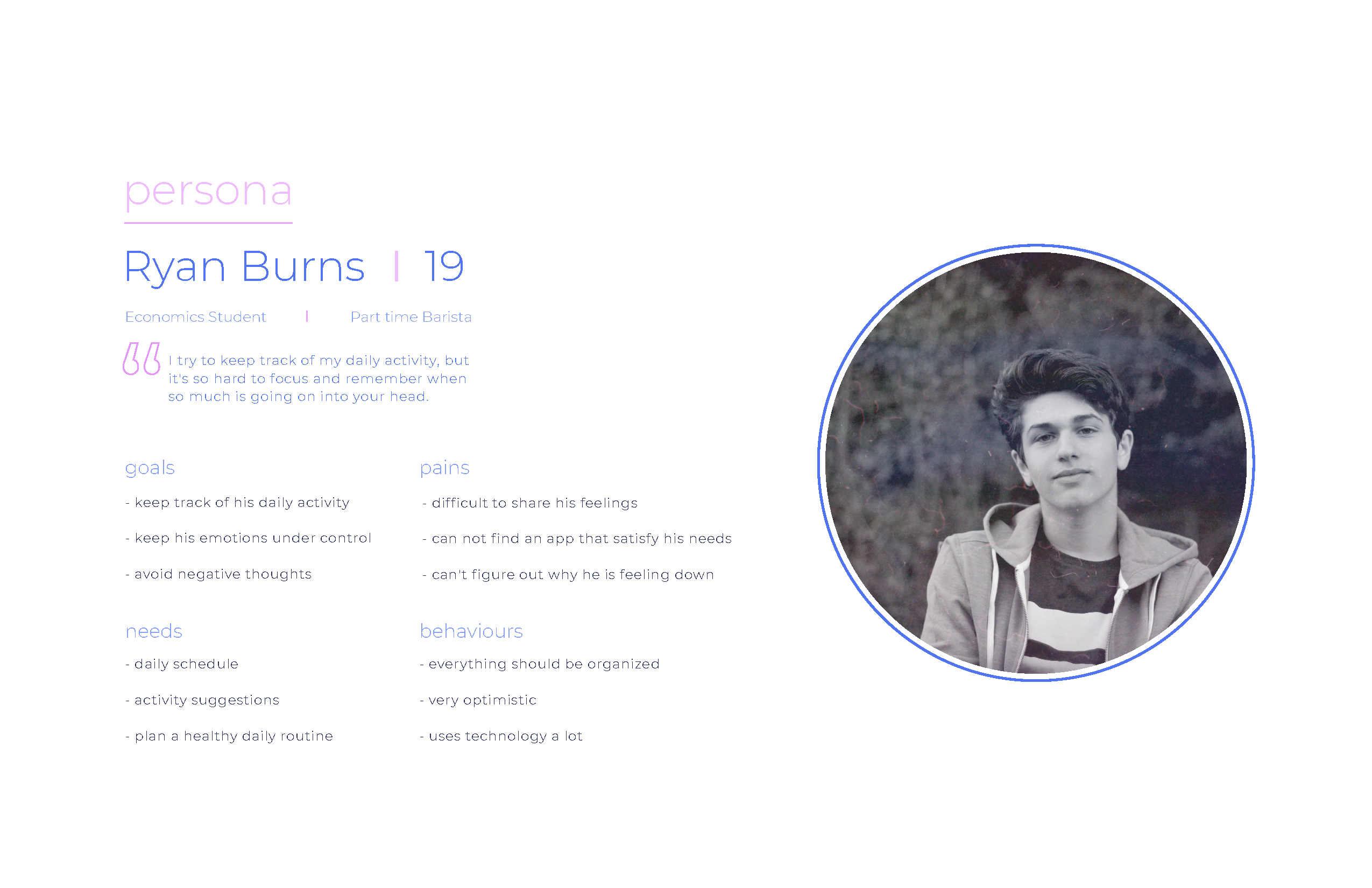
These interviews and personas allowed us to better understand the needs of different individuals, in order to avoid surface-level suggestions. However, for the purpose of prototype testing and lack of a proper, personalized algorithm, Mend uses coping skills from the Canadian Mental Health Association as a reference.
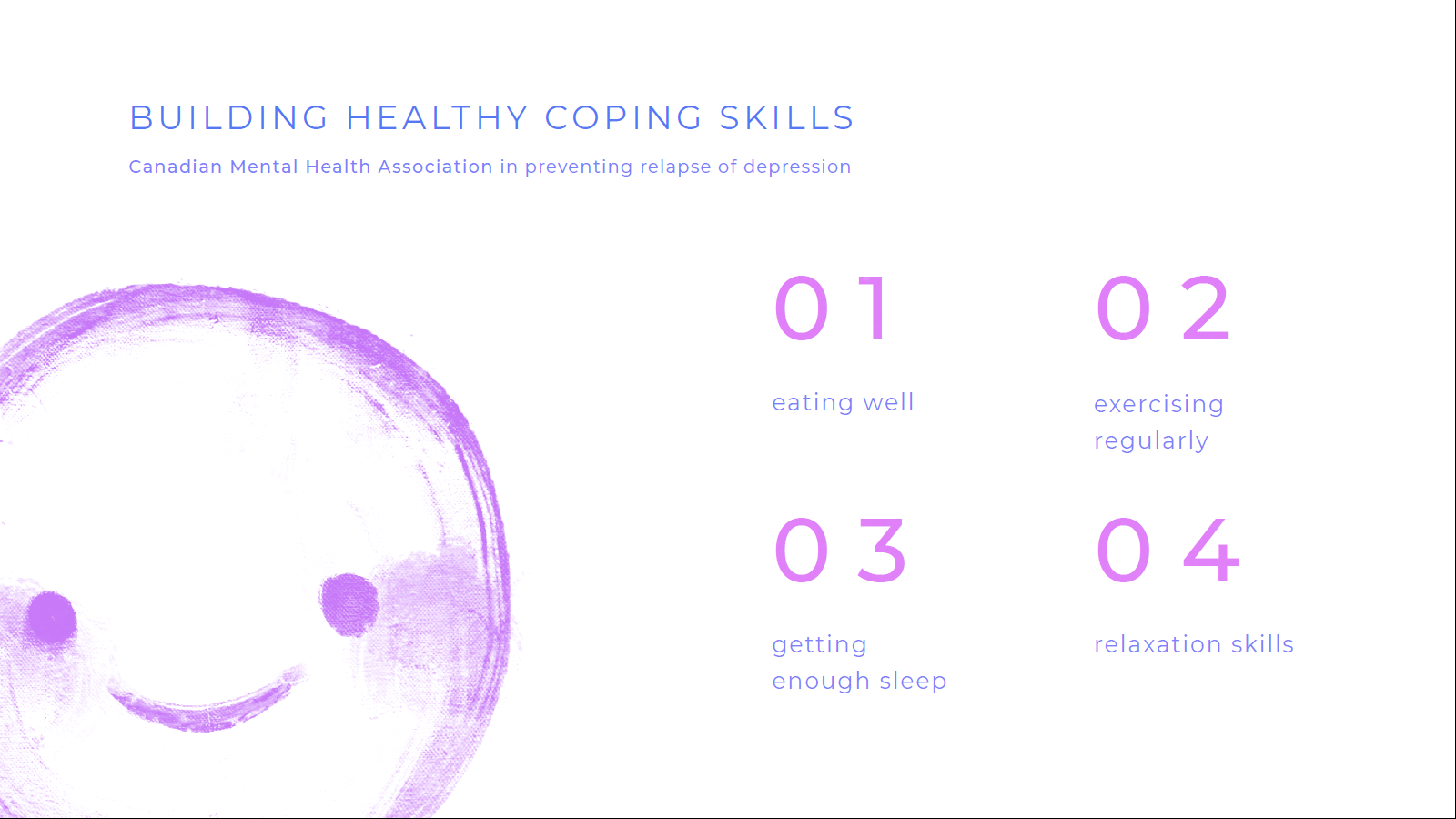
challenges
Health and Safety is a challenging domain that requires extensive research. Since we chose a wicked hard problem area, we had to be very careful of how to execute this app without offending nor demeaning any users’ experiences.
outcome
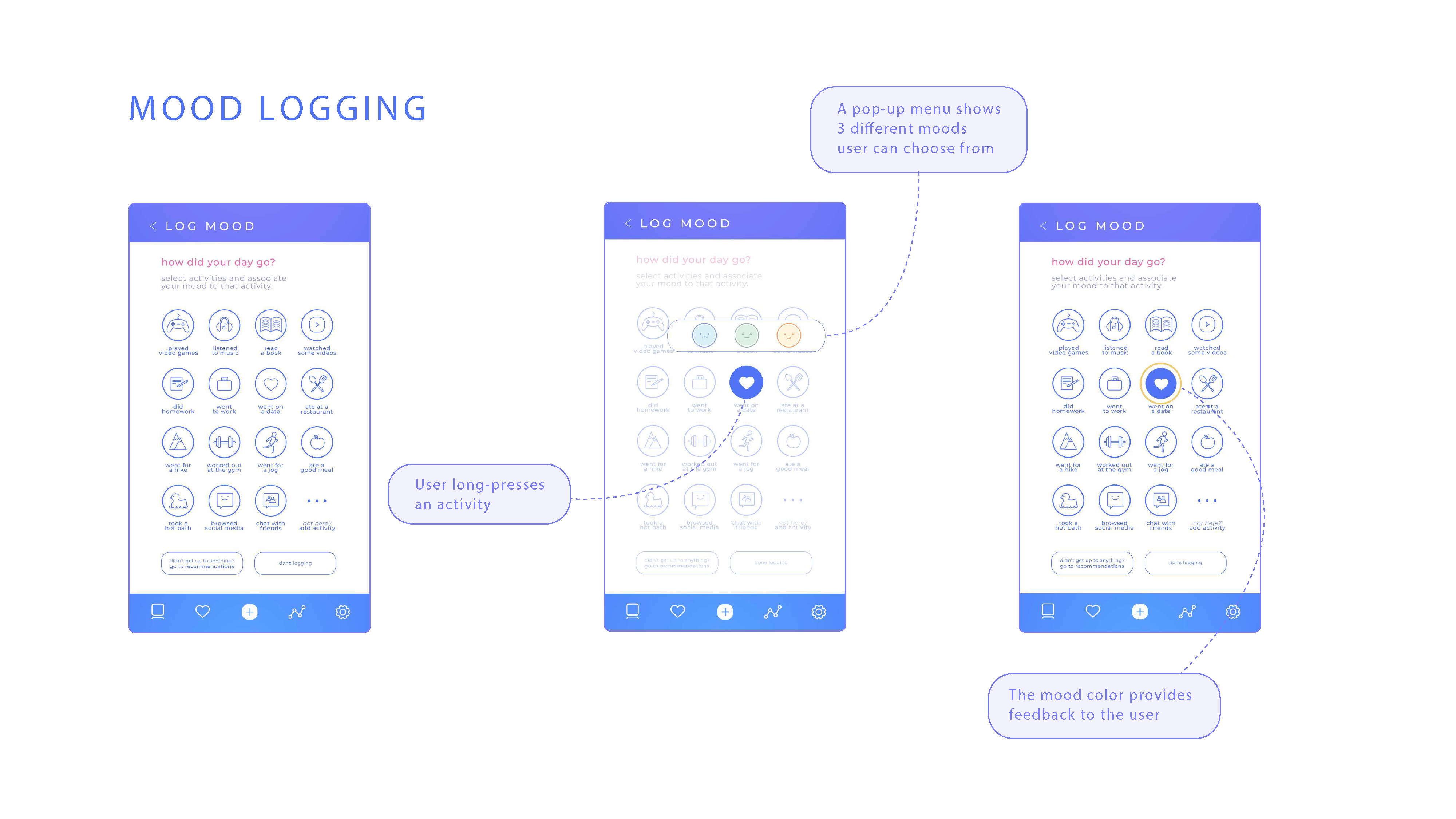
Due to the sensitivity of our target audience, it was difficult to fully respond to those who suffer with major depressive disorder; however, we allowed Mend to carry on as a support tool for a wider audience to track their mood over time.
